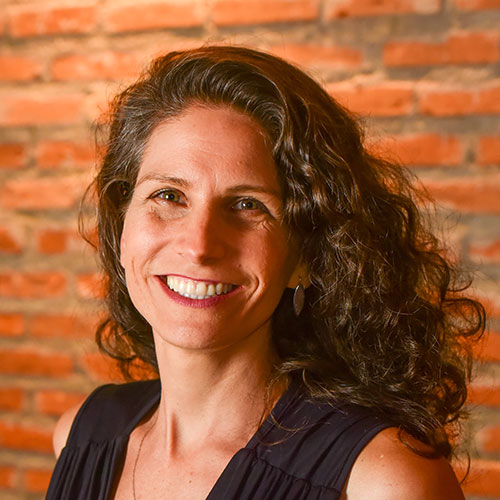World AIDS Day: NGOs are central to the defence of rights and the fight against the stigma of people with HIV
The number of people with HIV has decreased over the years, but remains high; young people are the most vulnerable in Brazil
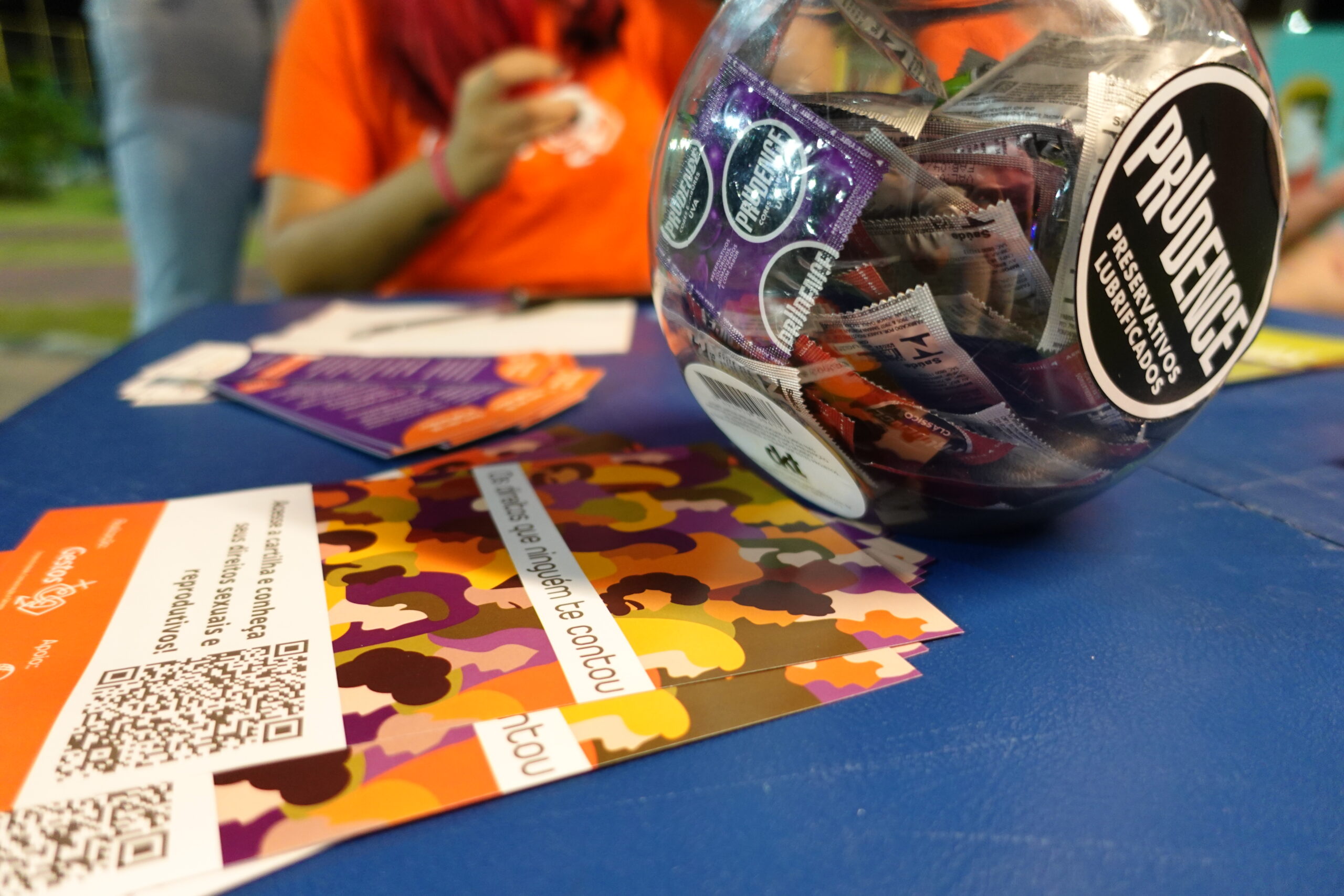

Decades after the beginning of the AIDS epidemic worldwide, December 1 continues to be crucial for the fight against the HIV virus. In Brazil alone, according to the latest epidemiological bulletin from the Ministério da Saúde (Ministry of Health), from 2022, approximately 40 thousand new cases of people with HIV and over 35 thousand cases of AIDS have been reported.
As the data show, living with HIV is not the same as having AIDS. Medications have been ensuring more time and quality of life, preventing the virus from progressing to the latest stage, AIDS. However, prejudice and stigma make it difficult to raise awareness about these issues.
For Josineide de Meneses, coordinator of programs and projects at the NGO Gestos, which focuses on attention to HIV-positive individuals, misinformation and the taboo surrounding sexuality contribute to this. “When AIDS emerged in Brazil, the media reported it as a gay plague because initially, it affected mostly homosexual men. But today, the majority of infected individuals are men who identify as heterosexual and engage in sexual activity with other men, known as MSM,” she says.
She says that, although the infection is higher among men, black women are the ones who die the most, both due to difficulty accessing healthcare services and due to material issues and stigma. “Many do not undergo treatment because they do not want others to know about this condition,” she explains.
The fight against stigma
For Josineide de Meneses, associating infection with sexual promiscuity also reinforces a distorted view of the risks. “Knowing how many partners a person has and wanting to control that is in the moral field. That doesn’t matter! Each person knows about their own sexual life. The important thing is for the person to protect themselves,” she warns.
Gestos was created in Recife in 1993 to support people living with HIV and to advocate for political action so that governments could respond with prevention measures and the realization of rights for those affected. At that time, the only available medication was AZT.
“In the beginning, we used to provide legal assistance to ensure medication, then we started working on workplace discrimination issues, and today we are focused on social security rights,” she points out. Currently, about 400 people are served by the organization per year. The NGO is the only one in the country with advisory work with the UN and was elected one of the best in Brazil in 2022.
In addition to legal assistance, Gestos offers HIV, hepatitis, and syphilis testing, as well as psychological support and counselling, all free of charge: “Receiving a positive result for HIV greatly affects one’s subjectivity. For many people, it is still very difficult to face, precisely because of the impact of stigma,” says Josineide.
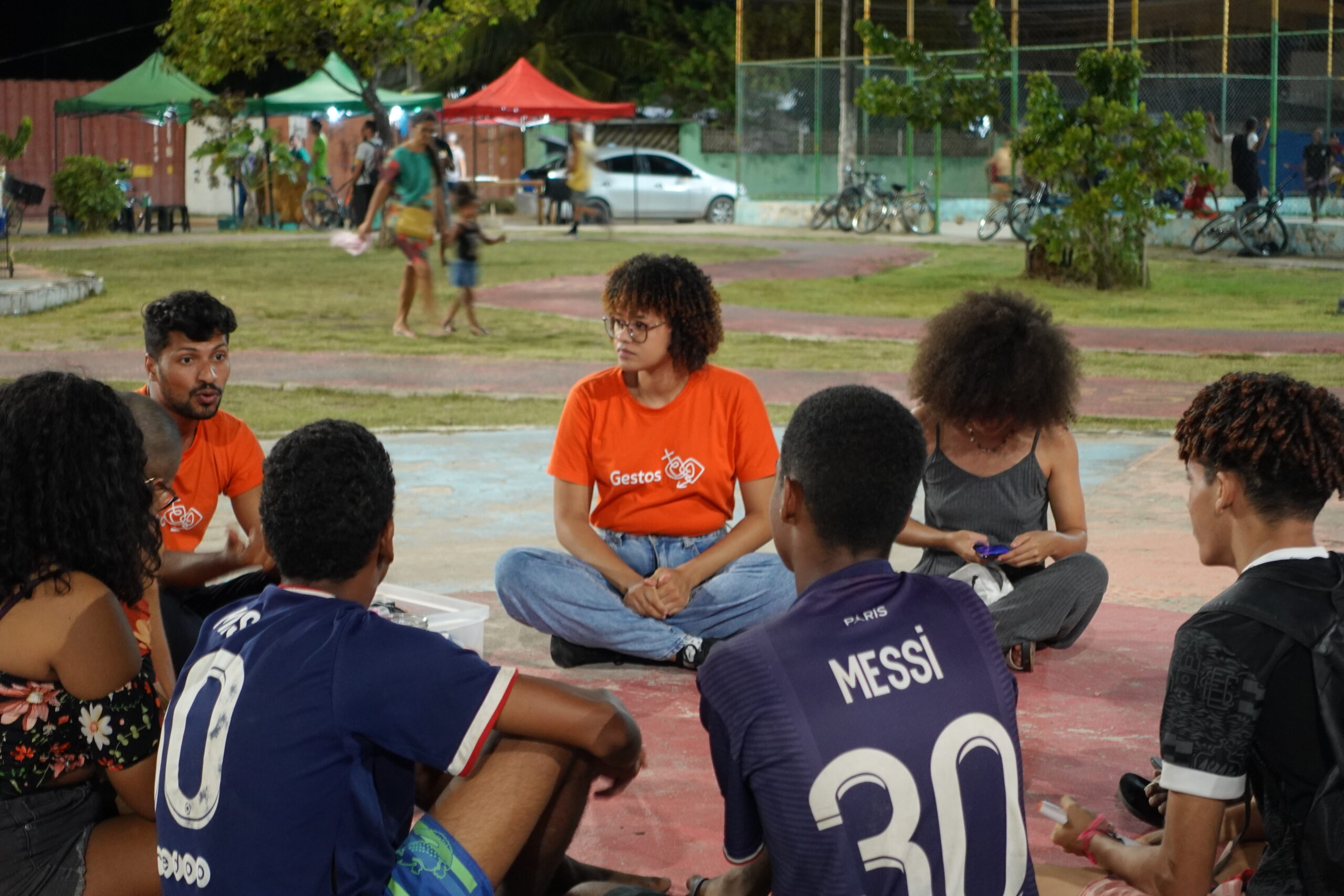
Normal life
With the emergence of the antiretroviral medication cocktail in 1996, it became possible to prevent the multiplication of the virus in the body, helping to avoid the weakening of the immune system. Since then, new medications have been developed, allowing HIV carriers to live a normal life.
The Brazilian government offers free treatment, all through the Sistema Nacional de Saúde (SUS). There are 22 medications in 38 different pharmaceutical presentations. There are already many cases of people taking medication with undetectable viral loads for HIV. After six months, and maintaining the correct treatment, the risk of transmission through sexual intercourse is considered insignificant in these cases.
Between 2011 and 2021, however, more than 50,000 young people with HIV, aged 15 to 24, of both sexes, progressed to AIDS. The numbers show that efforts need to be made to link them to services and ensure adherence to antiretroviral therapy (ART).
Young people and sexuality
Young people are becoming the fastest-growing profile of infected individuals in Brazil. According to Josineide, many spaces where young people circulate today are permeated by religious conservatism, making it difficult to have a dialogue about these issues. That is why the NGO maintains an open space for young people and adolescents living with or without HIV.
The space serves to provide information about sexual and reproductive health, discuss topics related to sexual orientation and gender identity, and offer psychological support to address these issues. There is also a training program for young activists who visit schools and other community spaces.
The goal is to have these young people engage in dialogue with others from the perspective of peer education. The group is diverse in terms of gender identity and sexual orientation. “The group includes heterosexuals, transgender individuals, bisexuals, and non-binary individuals, precisely to reflect on these issues within the group and then have conversations with the wider public, so that there can be identification between them,” says Josineide.
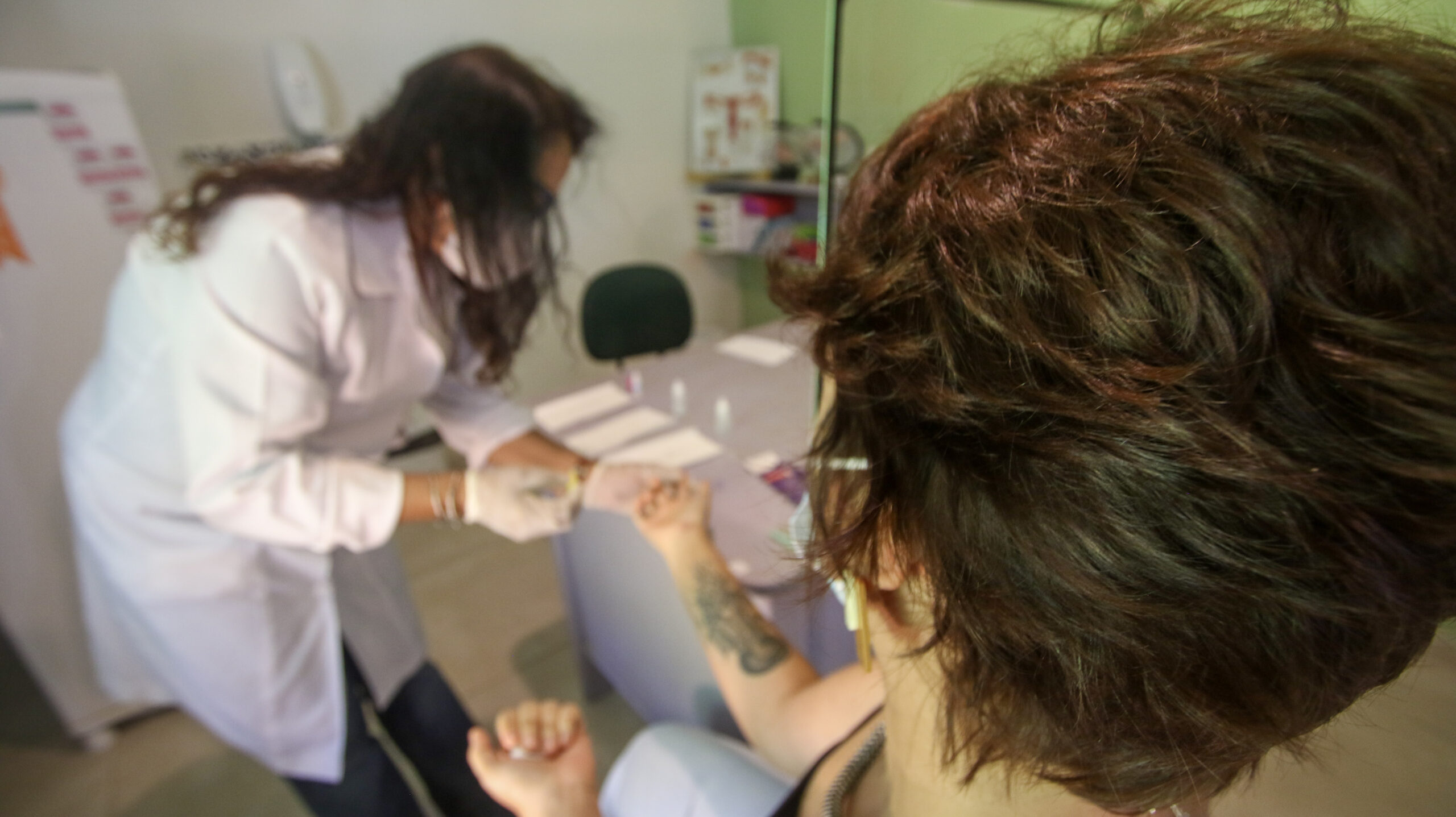

Safe sex
The majority of HIV transmission cases occur through unprotected sexual intercourse. Therefore, the use of condoms remains the main way to prevent it. It is also possible to be a user of PrEP, which is pre-exposure prophylaxis.
For Cristiano Ramos, an activist in the fight against AIDS, it is concerning to see the growth of HIV among adolescents. “This shows that they are starting their sexual life earlier and without protection.” He notes that prevention campaigns have decreased as medication has become more effective in controlling the infection.
“It has been many years since the government has developed a serious, educational campaign about the use of condoms, encouraging testing… early diagnosis directly interferes with the quality of life of the carrier,” warns the activist.
He recalls that during the 1990s and early 2000s, it was common to have campaigns about the infection throughout the year. “Today, most of the funds directed towards HIV/AIDS in Brazil are used for the acquisition of medication,” he points out.
NGOs and the rights of people living with HIV and AIDS
Cristiano Ramos has been living with HIV for 35 years and now coordinates the NGO Friends of Life, founded by his father in Distrito Federal in 2000. He says he discovered he had HIV when he was 18 years old and that his father embraced the fight at the same time.
“I used to take medication at the public hospital and I saw people dying next to me due to lack of financial support and family support. So my father started working within the hospital, buying medications for opportunistic infections. Because the government treated HIV, but not the infections that commonly affect people with very low immune defences,” he recalls.
Over the course of these 24 years, more than 30,000 people have passed through the NGO. It is the only organization that defends the rights of HIV/AIDS patients in Distrito Federal and surrounding areas. “It is possible to request disability retirement or BPC LOAS. If the person has a property financed by Banco do Brasil or Caixa, and the diagnosis is made after the purchase of the property, the property is also paid off,” clarifies.
In addition to providing free legal assistance, the NGO defends the rights of LGBTQIAP+ populations and promotes social projects, such as toy libraries built in public hospitals and libraries created in schools on the outskirts. There are also spaces built in hospitals to support women victims of violence.
All of these actions are carried out in partnership with other institutions, such as the government of the Netherlands, Brazil Foundation, Ministério da Saúde, Ministério da Cultura and the Sabin laboratory network.
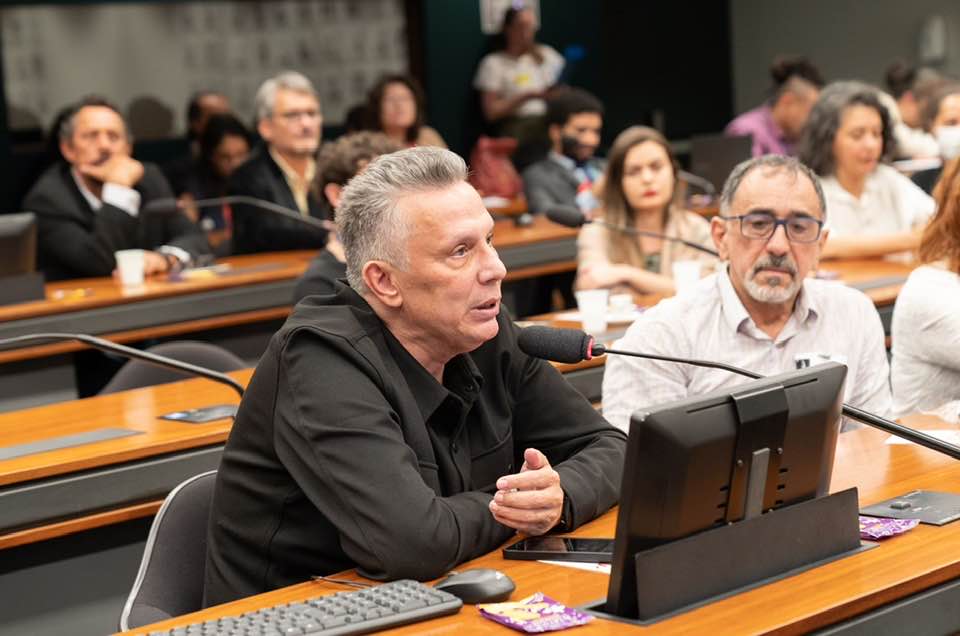

HIV is not transmitted through hugs or kisses
For Cristiano Ramos, it is necessary to separate the AIDS epidemic into two moments. The first, was when it emerged in the 1980s, in which people died quickly because there was no adequate treatment. And the other, from 1996 until the present day, marked by the advancement of medication.
“Today, medications have fewer or almost no adverse reactions or side effects. This allows people living with HIV to lead a normal life. The only thing that existed back then and still exists today is stigma, prejudice, and discrimination”.
According to him, only information can combat the stigma and prejudice associated with HIV carriers. “HIV is not transmitted through hugs, kisses or sharing utensils. You just can’t share sharp objects with a person living with HIV. Everything else is fine,” he says.
The activist recalls that Brazil is a reference in the treatment of HIV/AIDS. However, there is still a lot of discrimination. “Many families kick out the person who has been diagnosed from their homes. Last year, I visited a patient in Lago Sul and when I arrived there, I saw the main house and, in the back, an apartment for the son who had HIV. Absurdities like these still happen…”, he laments.
Do you want to support this cause?
Gestos
Donations are essential to keep the NGO Gestos running. To donate, visit the website or contact us on WhatsApp: +55 (81) 3421-7670. Gestos is also on social media on Facebook, Instagram and Twitter/X.
Amigos da Vida
The NGO Friends of Life welcomes volunteers and donations. To learn more, visit the website or follow them on Facebook and Instagram. The contact phone number is +55 (61) 3232-5740.
